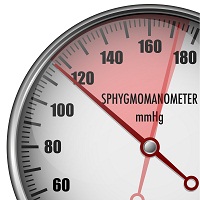
1. Intensive BP control benefits all patients |

![]() Using intensive treatment to lower blood pressure below currently recommended targets significantly reduces rates of major cardiovascular events like stroke and heart attack among a wide range of high-risk patients.
The large meta analysis study published in The Lancet, included almost 44,989 individuals. The study shows more intensive management of high blood pressure achieved an average 7.0 mmHg lower systolic blood pressure and reduced risk of heart attacks by about 14% and stroke by roughly a quarter compared to standard treatment.
Using intensive treatment to lower blood pressure below currently recommended targets significantly reduces rates of major cardiovascular events like stroke and heart attack among a wide range of high-risk patients.
The large meta analysis study published in The Lancet, included almost 44,989 individuals. The study shows more intensive management of high blood pressure achieved an average 7.0 mmHg lower systolic blood pressure and reduced risk of heart attacks by about 14% and stroke by roughly a quarter compared to standard treatment.
![]() To address this uncertainty, the researchers did a systematic review and meta-analysis of all randomised trials comparing different blood pressure targets from 1950 up to the end of October 2015. In particular, they examined the potential benefits and safety of additional blood pressure lowering in high-risk individuals whose systolic blood pressure was under the current target of 140mmHg.
To address this uncertainty, the researchers did a systematic review and meta-analysis of all randomised trials comparing different blood pressure targets from 1950 up to the end of October 2015. In particular, they examined the potential benefits and safety of additional blood pressure lowering in high-risk individuals whose systolic blood pressure was under the current target of 140mmHg.
![]() Overall, the findings showed that intensive treatment reduced heart attacks by about 14% and stroke by around a quarter compared with less intensive regimens. Progressive retinopathy (damage to the retina of the eye) was also reduced by about a fifth. The absolute benefits were greatest in trials in which all patients had vascular disease, kidney disease, or diabetes. The reductions in disease were similar regardless of age or blood pressure before treatment. Although there were encouraging trends, more intensive treatment had no clear effect on risk of heart failure, cardiovascular death, end stage kidney disease, or life expectancy.
Overall, the findings showed that intensive treatment reduced heart attacks by about 14% and stroke by around a quarter compared with less intensive regimens. Progressive retinopathy (damage to the retina of the eye) was also reduced by about a fifth. The absolute benefits were greatest in trials in which all patients had vascular disease, kidney disease, or diabetes. The reductions in disease were similar regardless of age or blood pressure before treatment. Although there were encouraging trends, more intensive treatment had no clear effect on risk of heart failure, cardiovascular death, end stage kidney disease, or life expectancy.
For enquiries info@jothydev.net.
Please visit: jothydev.net | research.jothydev.com | diabscreenkerala.net | jothydev.com/newsletter
